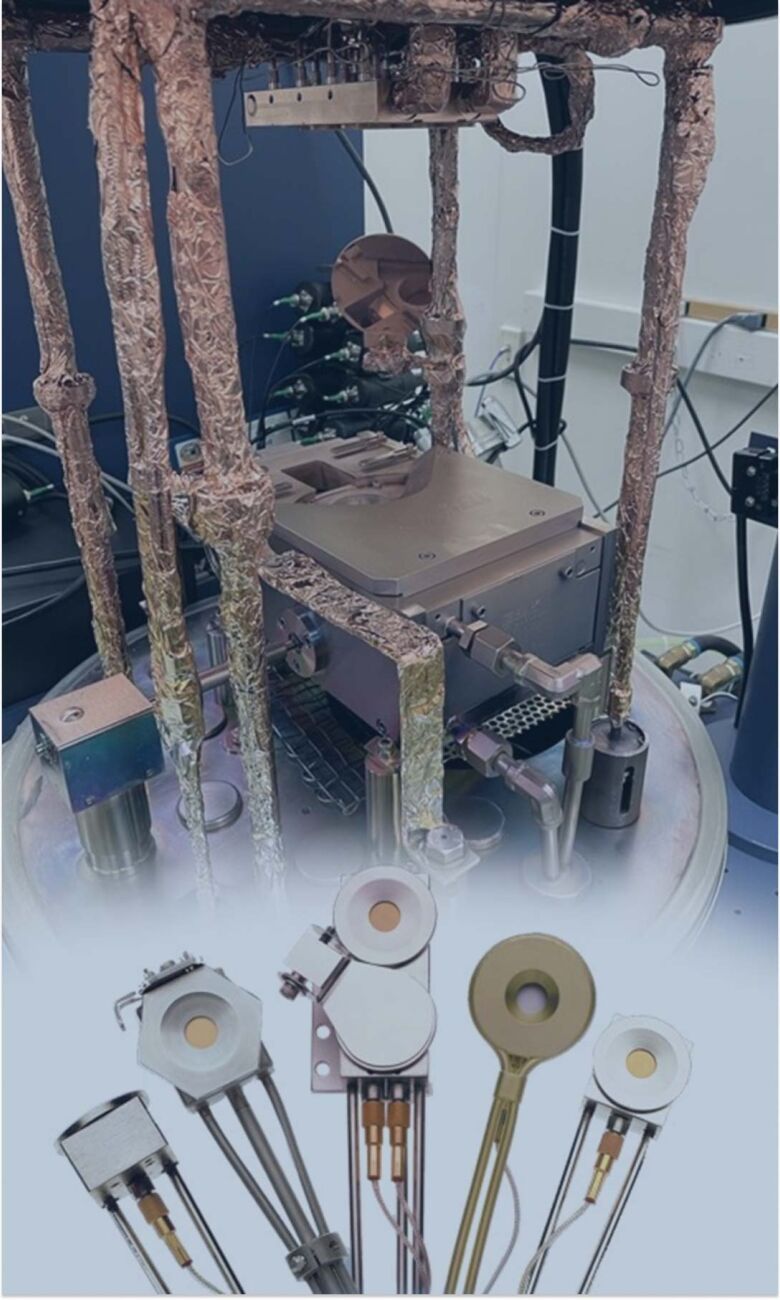Más información sobre nuestros productos y servicios.
Related information
La precisión y fiabilidad de los cristales de INFICON están totalmente comprobadas
El cristal estándar de 25,4 mm (1 pulgada) de diámetro y corte "AT", usado inicialmente por INFICON, se utiliza principalmente en aplicaciones de investigación con los sistemas RQCM (microbalanza de cristal de cuarzo para investigación) de INFICON.
Proteja y aumente sus beneficios con una supervisión precisa de la velocidad y el espesor
Proteja y aumente sus beneficios con una supervisión precisa de la velocidad y el espesor
El sensor SemiQCM® SR es un componente de un sistema para la supervisión de precursores siendo los otros componentes un IMM-200 y FabGuard (versión 19.12.00-a o superior).
Proteja y aumente sus beneficios con una supervisión precisa de la velocidad y el espesor
Mayor estabilidad, mayor precisión del espesor y ahorro de tiempo
